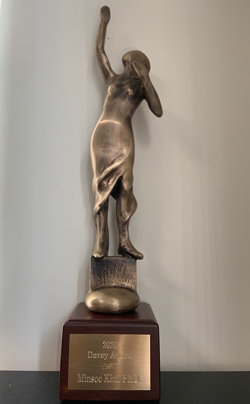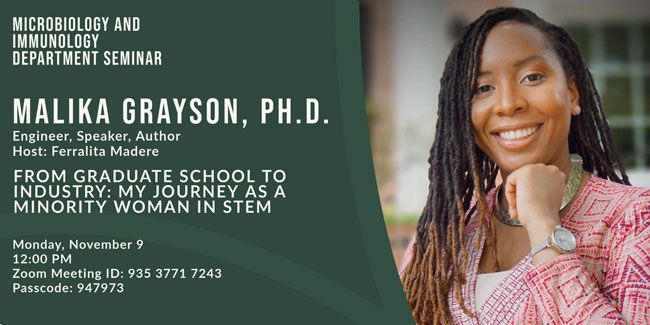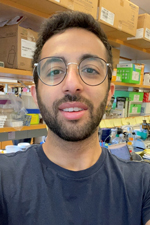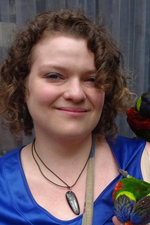WXXI Live Forum addresses COVID-19 vaccines:
Thursday, December 17, 2020
 WXXI hosts a live, televised forum addressing COVID-19 vaccines.
WXXI hosts a live, televised forum addressing COVID-19 vaccines.
Local experts on the latest COVID-19 vaccine research gathered for a live forum on WXXI-TV and radio Thursday night. Those on the panel said they see reason for hope, but they also caution it will take some time for the community to build up immunity to the virus.
Researchers on the program from the University of Rochester Medical Center included Dr. Angela Branche, co--director of the URMC Vaccine Trials and Evaluation Unit. Branche talked about the challenge to get past the mistrust that some people in the Black community have regarding medical research, when the vaccine becomes more widely available.
"And we're really going to have to work with our community partners, leaders and activists in the community who already have established trust with these groups that we're talking about and partnering with them and giving them educational tools and helping them deliver the message is really what's going to be the most effective," Branche said.
Monroe County's commissioner of Public Health, Dr. Michael Mendoza also sees a need to provide as much outreach and education to the community as possible about the vaccine. And he emphasized the need to continue following guidelines about wearing masks and physical distancing, because it will take a while to get most people inoculated.
"We have a vaccine on the ground, there are people who are getting the vaccine now, but the reality is that there is still so much time between now and when this is over."
Mendoza said that right now he is concerned about the rapidly increasing numbers of people being hospitalized and how that could impact health care in general in the Finger Lakes region.
$18 Million Grant Supports HIV/AIDS Research, Outreach to Rochester Community
Wednesday, December 2, 2020
The University of Rochester Medical Center's Infectious Diseases Division has partnered with the National Institutes of Health (NIH) to study HIV/AIDS for more than 30 years. Their efforts have been recognized with a new $18 million grant to continue conducting vaccine and treatment trials and engaging with communities affected by HIV.
The award also allows Rochester researchers to study other high-priority infectious diseases, including COVID-19. The team (pictured above) pivoted to study coronavirus vaccines and treatments over the past six months, contributing to the worldwide effort to bring safe and effective vaccines and therapies to market as quickly as possible.
"While creating a preventive HIV vaccine has been complex, our work has established approaches that are used for HIV and also contributed to the unprecedented speed at which coronavirus vaccines are being developed," said Michael C. Keefer, M.D., professor in the department of Medicine and interim chief of the Infectious Diseases Division. For example, vaccines using adenoviruses as carriers of HIV proteins have been used in HIV research for years, and that is one of the approaches being used in two of the actively enrolling COVID-19 vaccine efficacy trials (AstraZeneca and Janssen trials). Additionally, anti-HIV monoclonal neutralizing antibodies have been shown to be effective in preventing some HIV infections, and anti-coronavirus monoclonal antibodies have become an important strategy to treat patients with early-stage COVID-19.
The division received its first grant and became a part of the National Institute of Allergy and Infectious Diseases (NIAID) HIV/AIDS Clinical Research Networks in 1987. Led by Keefer and Stephen Dewhurst, Ph.D., chair of the department of Microbiology and Immunology, as well as program director Catherine Bunce, the new grant will run for seven years and will be used to:
- Coordinate and execute high-quality HIV/AIDS vaccine and treatment trials that enroll participants from diverse populations.
- Engage with local communities to assess attitudes to clinical research and conduct educational outreach around research participation.
- Mentor and train the next generation of HIV/AIDS researchers.
- Advance HIV/AIDS research by providing scientific leadership and supporting NIAID's AIDS Clinical Trials Group (ACTG) and HIV Vaccine Trials Network (HVTN).
- Provide data and quality management, regulatory support, laboratory, pharmacy and other resources to effectively support HIV/AIDS clinical trials.
- Rapidly respond to emerging infectious diseases that require national attention and coordination.
Congratulations Dr. Kim
Friday, November 20, 2020
 Minsoo Kim, Ph.D was recognized recently with the Davey Award, an honor bestowed on University of Rochester/Wilmot Cancer Institute faculty members who have made outstanding contributions to cancer research.
Minsoo Kim, Ph.D was recognized recently with the Davey Award, an honor bestowed on University of Rochester/Wilmot Cancer Institute faculty members who have made outstanding contributions to cancer research.
New Institute Takes Aim at Infectious Pathogens, Builds Pipeline of Clinician Researchers
Wednesday, November 11, 2020
The University of Rochester Medical Center (URMC) has created a new institute that will strengthen and accelerate the study of viral, bacterial, and fungal pathogens. The Translational Immunology and Infectious Diseases Institute (TIIDI) will build upon decades of scientific research leadership in the human immune system, respiratory viruses, and vaccine development, and, more recently, the Medical Center's role in the national response to the coronavirus pandemic.
The new Institute -- which is led by David J. Topham, Ph.D., and was approved by the University of Rochester Board of Trustees last month -- will bring together multi-disciplinary teams of scientists and clinicians that will take the knowledge gained from basic research in immunology, microbiology, and virology and apply it to problems in human diseases caused by infectious pathogens. TIIDI will also strengthen education and training programs to build a pipeline that produces the next generation of adult and pediatric clinician-researchers in the field.
Researchers will study infectious diseases across several areas of medicine, including immunodeficiency, cancer, transplant, orthopedics, ophthalmology, dermatology, gastroenterology, autoimmunity, neonatology, and public health. TIIDI will focus on the development of new treatments and vaccines, and strategies to better control the spread of infectious diseases, such as HIV, respiratory pathogens, and hospital acquired infections. Researchers will also study the pathology of infectious diseases to better assess risk factors for severe outcomes and develop more effective early interventions.
Special Department of Microbiology and Immunology Seminar – Dr. Malika Grayson – November 9th at NOON
Friday, October 23, 2020
How do you make an impact when you are the only person in the room that looks like you? We hear the terms diversity and inclusion but forget that the term representation should be a reflection of diversity and inclusion combined. This isn't always the case. Dr. Grayson discusses her views on what it means to increase diversity and representation as an Individual Contributor. Learn more about her journey as the 2nd Black Woman to graduate with a PhD in Mechanical Engineering from her graduate institution. Hear about her current work as both an engineer, a STEM Advocate, and her most recent success as author of 'HOODED: A Black Girl's Guide to the PhD' where she highlights her time and lessons learned during her PhD Program.

Can the Common Cold Help Protect You from COVID-19?
Thursday, October 1, 2020
Seasonal colds are by all accounts no fun, but new research suggests the colds you've had in the past may provide some protection from COVID-19. The study, authored by infectious disease experts at the University of Rochester Medical Center, also suggests that immunity to COVID-19 is likely to last a long time -- maybe even a lifetime.
The study, published in mBio, is the first to show that the COVID-19-causing virus, SARS-CoV-2, induces memory B cells, long-lived immune cells that detect pathogens, create antibodies to destroy them and remember them for the future. The next time that pathogen tries to enter the body, those memory B cells can hop into action even faster to clear the infection before it starts.
Because memory B cells can survive for decades, they could protect COVID-19 survivors from subsequent infections for a long time, but further research will have to bear that out.
The study is also the first to report cross-reactivity of memory B cells -- meaning B cells that once attacked cold-causing coronaviruses appeared to also recognize SARS-CoV-2. Study authors believe this could mean that anyone who has been infected by a common coronavirus -- which is nearly everyone -- may have some degree of pre-existing immunity to COVID-19.
"When we looked at blood samples from people who were recovering from COVID-19, it looked like many of them had a pre-existing pool of memory B cells that could recognize SARS-CoV-2 and rapidly produce antibodies that could attack it," said lead study author Mark Sangster, Ph.D., a research professor of Microbiology and Immunology at URMC.
Sangster's findings are based on a comparison of blood samples from 26 people who were recovering from mild to moderate COVID-19 and 21 healthy donors whose samples were collected six to 10 years ago -- long before they could have been exposed to COVID-19. From those samples, study authors measured levels of memory B cells and antibodies that target specific parts of the Spike protein, which exists in all coronaviruses and is crucial for helping the viruses infect cells.
Cells Sacrifice Themselves to Boost Immune Response to Viruses
Wednesday, September 30, 2020
Whether flu or coronavirus, it can take several days for the body to ramp up an effective response to a viral infection. New research appearing in the journal Nature Immunology describes how different cells in the immune system work together, communicate, and -- in the case of cells called neutrophils -- bring about their own death to help fight off infections. The findings could have important implications for the development of vaccines and anti-viral therapies.
"The immune system consists of several different types of cells, all acting in coordination," said Minsoo Kim, Ph.D., a professor of Microbiology and Immunology at the University of Rochester Medical Center (URMC) and senior author of the study. "These findings show that cells called neutrophils play an important altruistic role that benefits other immune cells by providing key resources for their survival and, in the process, enhancing the body's immune response against a virus."
Neutrophils are a key component of the innate immune system, the part of the body's defenses that is always switched on and alert for bacterial and viral invaders. The vast majority of white cells circulating in blood are neutrophils and, as a result, these cells are the first on the scene to respond to an infection.
However, neutrophils are not fully equipped to eliminate a viral threat by themselves. Instead, when the respiratory tract is infected with a virus like influenza or COVID-19, a large number of neutrophils rush to the infection site and release chemical signals. This triggers the production of specialized T cells, which are part of the body's adaptive immune system, which is activated to produce a more direct response to specific infections. Once mobilized in sufficient quantities, a process that typically takes several days, these T cells target and ultimately destroy the infected cells.
The new study, which was conducted in mice infected with the flu virus, shows that in addition to jump-starting the adaptive immune response, neutrophils have one more important mission that requires that they sacrifice themselves. As T cells arrive at the infection site, the neutrophils initiate a process called apoptosis, or controlled death, which releases large quantities of a molecule called epidermal growth factor (EGF). EGF provides T cells with the extra boost in energy necessary to finish the job.
"This study represents an important paradigm shift and shows that the adaptive immune system doesn't generate a successful response without instruction and help from the innate immune system," said Kim. "The findings reveal, for the first time, how different immune cells work together, and even sacrifice themselves, to accomplish the same goal of protecting the host from the viral infection."
RNA Essay Contest Results and Congratulations
Wednesday, August 26, 2020
The UR Center for RNA Biology offered an exercise during the time when COVID-19 became a sufficient threat to largely shut-down our research enterprise. We're pleased to announce the winners of the UR's Center for RNA Biology Essay Contest on "The role of RNA research in community health". These awards are sponsored by a grant from the RNA Society & Lexogen to the UR Center for RNA Biology, and funds from UR RNA Structure & Function Cluster.
Our Gold prize (~$1,000 value) award goes to Sydney Simpson, an Immunology, Microbiology & Virology graduate student in Steve Dewhurst's lab in the Department of Microbiology & Immunology, for her essay: "Nucleoside Analog Inhibitors: Timeless & Timely Beacons of Hope".
The Silver Prize (~$250 value) award goes to Omar Hedaya, a Biochemistry & Molecular Biology graduate student in Peng Yao's lab in the Department of Medicine/Department of Biochemistry & Biophysics, for his essay: "Know the Fundamentals when Seeking the Future".

Omar Hedaya

Sydney Simpson
Both awardees have become members of the RNA Society and will use their winnings toward technology needs for the upcoming semester.
The RNA Society now features our contest results, including the winning essays, in its latest RNA Salon update: https://www.rnasociety.org/featured-salons, see bullet #3.
We would like to acknowledge Honorable Mentions for the following applicants:
- Sai Shashank Chavali -- Graduate student; Biophysics, Structural & Computational Biology; Wedekind Lab
- Lily Cisco -- Graduate student; Cellular and Molecular Pharmacology & Physiology; Lueck Lab
- Gabrielle Kosoy -- Graduate student; Biophysics, Structural & Computational Biology; Miller Lab
- Ashwin Kumar -- Graduate student; Biophysics, Structural & Computational Biology; Topham Lab
- Li Xie -- Graduate student; Genetics, Development & Stem Cells; Pröschel Lab
We thank all who participated -- and our judges, too!
Thakar Lab publishes article on the Impact of vaccine type on HIV-1 vaccine elicited antibody durability and B cell gene signature
Monday, August 10, 2020
Abstract
Efficacious HIV-1 vaccination requires elicitation of long-lived antibody responses. However, our understanding of how different vaccine types elicit durable antibody responses is lacking. To assess the impact of vaccine type on antibody responses, we measured IgG isotypes against four consensus HIV antigens from 2 weeks to 10 years post HIV-1 vaccination and used mixed effects models to estimate half-life of responses in four human clinical trials. Compared to protein-boosted regimens, half-lives of gp120-specific antibodies were longer but peak magnitudes were lower in Modified Vaccinia Ankara (MVA)-boosted regimens. Furthermore, gp120-specific B cell transcriptomics from MVA-boosted and protein-boosted vaccines revealed a distinct signature at a peak (2 weeks after last vaccination) including CD19, CD40, and FCRL2-5 activation along with increased B cell receptor signaling. Additional analysis revealed contributions of RIG-I-like receptor pathway and genes such as SMAD5 and IL-32 to antibody durability. Thus, this study provides novel insights into vaccine induced antibody durability and B-cell receptor signaling.
Sangster Weighs in on COVID-19 Vaccine, Antibodies
Wednesday, August 5, 2020
With millions of lives on the line, researchers have been working at an unprecedented pace to develop a COVID-19 vaccine.
But that speed—and some widely touted breakthroughs—belie the enormous complexity and potential risks involved. Researchers have an incomplete understanding of the coronavirus and are using technology that's largely unproven.
Among many worries: A handful of studies on COVID-19 survivors suggest that antibodies—key immune system proteins that fight infection—begin to disappear within months. That's led scientists to worry that the protection provided by vaccines could fade quickly as well. Some even question whether vaccines will really end the pandemic. If vaccines produce limited protection against infection, experts note, people will need to continue wearing masks and social distancing even after vaccines roll out.
People with severe symptoms from COVID-19 tend to have higher antibody levels than those with milder cases.
Some people fail to generate antibodies because they have compromised immune systems, said Mark Sangster, a research professor at the University of Rochester Medical Center.
Even when people do generate antibodies against the novel coronavirus, studies suggest the antibodies may not last long.
IMV Grad Student Megan Ulbrich Wins the Melville A. Hare Award for Excellence in Teaching
Friday, June 5, 2020
Please join the department in congratulating Megan Ulbrich, this year's winner of the Melville A. Hare Award for Excellence in Teaching. This award is given annually by the Department of Microbiology and Immunology to a graduate student who has displayed outstanding qualities of mentoring and teaching in one or more MBI courses. The award will be officially conferred at URMC Convocation in the late summer.
Megan is currently an IMV graduate student in Michelle Dziejman's lab working on multidisciplinary approaches to uncover novel effector protein functions. Megan grew up in Buffalo, NY and received her B.S. in Microbiology from the University of Pittsburgh.
Dr. Deborah Fowell appointed next Chair of the Department of Microbiology and Immunology
Tuesday, May 12, 2020
 We congratulate Dr. Deborah Fowell on her new position as Chair of the Department of Microbiology and Immunology at Cornell University College of Veterinary Medicine, where she will start this fall. As a valued faculty member and Dean's Professor in the Department of Microbiology and Immunology, Center for Vaccine Biology and Immunology, this is a bittersweet goodbye -- but a wonderful new opportunity for Deb!
We congratulate Dr. Deborah Fowell on her new position as Chair of the Department of Microbiology and Immunology at Cornell University College of Veterinary Medicine, where she will start this fall. As a valued faculty member and Dean's Professor in the Department of Microbiology and Immunology, Center for Vaccine Biology and Immunology, this is a bittersweet goodbye -- but a wonderful new opportunity for Deb!
Since joining UR in April 2000, Dr. Fowell has achieved great success in her research program. One example is her organization and leadership of an accomplished, interdisciplinary team of investigators in an NIH funded program project to visualize the immune system in action, which was recently renewed. Her efforts have led to tremendous advancements in the field and will continue to enhance our understanding of tissue inflammation and immune responses, while also providing new therapeutic targets for mitigation of a wide variety of inflammatory diseases.
Not only is Dr. Fowell an outstanding researcher, she is also deeply committed to excellence in graduate education. She recently took over as Program Director and successfully renewed the University's Predoctoral Training Grant in Immunology. In addition, she has received multiple mentoring awards at the UR, including the 2015 Graduate Alumni Award, which is the most prestigious student teaching and mentoring award here at the School of Medicine and Dentistry.
Dr. Fowell has a strong reputation among her peers as a highly innovative researcher with rigorous intellectual standards, and as a consistent advocate of the highest quality science and long-term success for academic research. Her collaborative approach to research, commitment to enriching learning and intellectual discourse, coupled with her drive and energy, will ensure her success at Cornell.
It's with pride, warm wishes and anticipation of exciting future collaborations that we wish Deb every success in her new role!